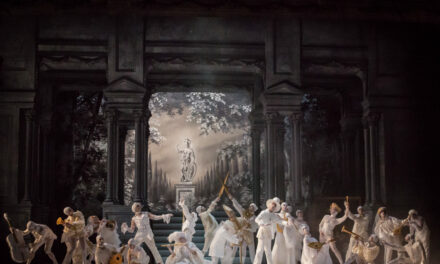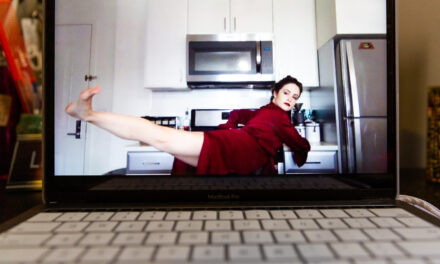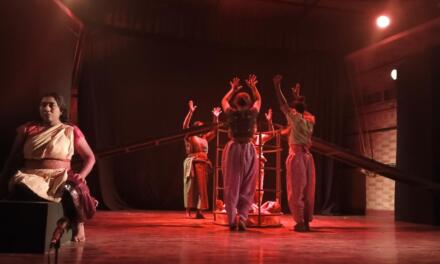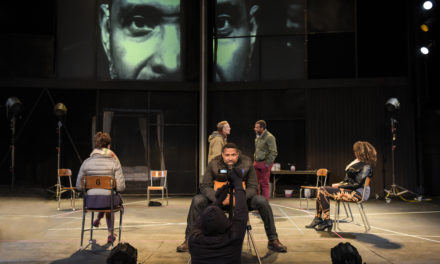The title of the play, The Amazing Doctor She Medicine Show, leaves one wondering who on earth was the amazing Doctor She. All is unveiled in this fifty-minute lecture-cum-interactive performance given by Katie Fanning. A three-strong female collective, two former MFA students from New York’s Columbia University and a third, from BOVTS, are visiting Edinburgh with the fruits of their academic research, after a sell-out run in New York City. I spoke to Isabella Russo, the show’s producer, who explained that when the time came for Phoebe Brooks and Katie Fanning to write their dissertations, they wanted to find a challenging subject. Shying away from a topic that had already been researched and published, they came upon the figure of Doctor She. The play, though, co-written by Brooks and Fanning, is far more than Doctor She’s biography, since the audience are invited to join a quest to recover her miracle cure, as well as taking part in some lively quizzes, testing their knowledge about both traditional medicine and what today we would term, ‘natural’ or ‘holistic’ remedies. The show opens, in what might be a lecture theatre, with no stage lighting, and audience members seated in a semi-circle. Fanning kicks off, informing us about the first published reference to Doctor She, the fictional character, Gillette de Narbonne, in Giovanni Boccaccio’s celebrated 14th century collection of stories, The Decameron. She grabs hold of a book, reading in old Italian, before switching quickly to English. But who, or what, she asks the audience, brought Doctor She to greater renown in the English-speaking world. She proceeds to reel off a list of Shakespeare plays. Still, unsurprisingly not many people guess the right answer: Shakespeare’s comedy, All’s Well that Ends Well, featuring the only female doctor in the Shakespeare canon. This gifted performer also treats us to several excerpts from the Shakespeare comedy. In one scene, she plays both Countess Roussillon, Helen’s ward, and Helen, namely Doctor She, a large puppet (designed by Ashil Lee), with a huge mouth, who tells us boldly she will stand her corner. The two discuss Helen’s predicament; she loves Bertram, the Countess’s son, but he has rejected her, because of her lowly status. She has, however, learnt medicine from her dead father, a famous physician, and realises it can stand her in good stead. The King of France is on his deathbed, suffering from a fistula, which none of his physicians have managed to cure. In order to win his favour and Bertram’s hand, Helen offers to treat the king, risking a death sentence if she fails. She succeeds in curing him, and after several hurdles which Bertram puts in her path, she marries the man she loves. The show is both entertaining and educational, introducing a remarkable female character, whom Shakespeare imagined with medical knowledge, in a period when women were banned from London’s Royal School of Medicine, but many took on the jobs of herbwomen and healers. Produced by A Manly Enterprise and the New York, feminist group, Spicy Witch Productions, The Amazing Doctor She Medicine Show ran at the Dovecot Studios venue, Edinburgh fringe, from 6 to 10 August.
This post was written by the author in their personal capacity.The opinions expressed in this article are the author’s own and do not reflect the view of The Theatre Times, their staff or collaborators.
This post was written by Margaret Rose.
The views expressed here belong to the author and do not necessarily reflect our views and opinions.



















